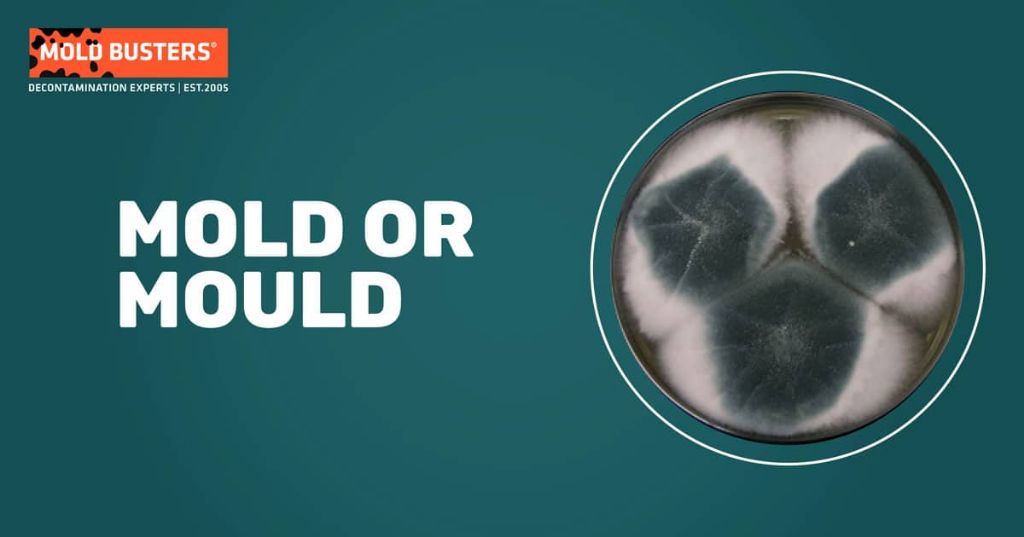Is It Mould Or Mold?
American and British English have notable differences in spelling and vocabulary. Some of the most well-known examples are the American spelling of words like “color” and “humor” compared to the British spelling of “colour” and “humour”. Other notable differences are the British spellings of “centre” vs. “center”, “defence” vs. “defense”, and “grey” vs. “gray”. These spelling differences originated from Noah Webster’s reform of American English spelling in the early 19th century. Webster sought to simplify some British spellings and distinguish American English from British English.
There are about 200 words that are generally spelled differently in American and British English today. Words like “check” vs. “cheque” and “plow” vs. “plough” show the influence of Webster’s reforms. However, there are also many words that can be spelled both ways even within each variety of English, such as “mold” and “mould” or “traveling” and “travelling.” Both American and British English have accepted these alternative spellings for many words.
Overall, while American and British English are mutually intelligible, the differences in spelling and vocabulary reflect the divergent paths the two varieties have taken since the founding of the United States.
Origin of the Words
The words “mould” and “mold” have slightly different etymological origins. According to Etymonline, the word “mould” traces back to the Old English “molde” meaning “earth, clay, dirt, ground.” It is related to Old Norse “mygla” meaning “to grow moldy.”
The word “mold,” on the other hand, comes from the Old Norse “mold” meaning “earth, dirt, soil.” This is from the Proto-Germanic “*muldō” and Proto-Indo-European “*melh2-” meaning “to grind, crush,” according to Wiktionary. The past participle of “moulen” meaning “to grow moldy” was “molde,” which evolved into the modern spelling “mold.”
So while the two words share some semantic similarities referring to dirt or decay, they have slightly distinct linguistic origins and pathways into modern English.
Current Usage
‘Mould’ is standard in British English and ‘mold’ is standard in American English.[1] They are alternate spellings of the same word that now have different preferred usages based on geographic region.

In UK English, ‘mould’ is by far the dominant spelling and is used in all senses of the word, including the verb meaning ‘to shape’. Meanwhile, ‘mold’ is the dominant spelling in American English, including as a noun referring to the fungus, a hollow container for shaping liquid material, or the natural microorganisms growing somewhere.[2]
Although there are exceptions, current formal writing conventions establish ‘mould’ and ‘mold’ as the accepted standard spellings in British and American English respectively. However, some flexibility remains in less formal contexts.
[1] https://grammarist.com/spelling/mold-mould/
[2] https://english.stackexchange.com/questions/27542/mold-vs-mould
Similar Word Pairs
There are many other examples of British and American spelling differences beyond mould/mold. Some of the most common are:
- Colour/color – British English uses ‘colour’ while American English uses ‘color’.
- Centre/center – The British spelling is ‘centre’ and the American spelling is ‘center’. This applies to other words like fibre/fiber.
- Organisation/organization – British English spells it with an ‘s’ while American English uses a ‘z’.
- Defence/defense – Same spelling difference as organisation/organization.
- Grey/gray – The British spelling is ‘grey’ and the American is ‘gray’.
- Neighbour/neighbor – British English uses ‘neighbour’ and American English uses ‘neighbor’.
These spelling differences extend to hundreds of words that originated from French or Latin roots. Britain tends to use spellings closer to the original source words while America has simplified some spellings over time.
Variations Within Countries
While there are general differences between British and American English spelling, there are exceptions to these rules within each country. For example, in the United States, molded plastic or molded rubber maintains the -ed ending versus the -t in moulded. Additionally, while favour and honour are common spellings in British English, organizations like the Oxford University Press use favor and honor in their own style guides. There are also British publications that prefer Americanized spellings for some words [1]. Ultimately, variations exist even within each country, though the general American versus British spelling patterns tend to dominate.
Academic Writing Styles
Academic writing often follows style guides that provide standards and guidelines on aspects like spelling, citation, formatting, and language use. Popular academic style guides include the APA Style from the American Psychological Association, MLA Style from the Modern Language Association, and Chicago Style from the University of Chicago Press (An Introduction to Academic Style Guides-APA, MLA, Chicago Guides).
These style guides offer recommendations on whether to use American or British English spelling for publications. For example, the APA Style uses American spelling, while MLA Style and Chicago Style allow both American and British variants. Writers should choose the appropriate spelling based on their target audience.
Academic writing in the United States most often uses American spelling, like “mold” instead of “mould.” Exceptions sometimes occur for established terms like “ousted” or “plough.” British spelling prevails in the United Kingdom, Canada, Australia, and other countries (Style Guide Overview – Purdue OWL).
Following the accepted spelling norms shows attention to detail and credibility in academic writing. However, the most vital aspect is maintaining internal consistency of spelling within a document.
Globalization Trends
In recent decades, increased globalization has led to more mixing of British and American English spellings in academic writing, business communications, and popular media. According to Pew Research, both Britons and Americans feel their cultures have been impacted by globalization, with over half of respondents in each country saying it has been pushed too far (1). This increasing interconnectedness has caused spellings to cross borders more fluidly.
As Praveen Kannan discusses, outsourcing and offshoring have disseminated American media and business culture globally, increasing the use of American spellings internationally (2). At the same time, British media exports and academic articles often retain British spellings. With information and ideas flowing rapidly worldwide, style mixing is now common.
For example, a 2016 study found that English learners in Senegal were exposed to both British and American resources, leading to mixed spelling knowledge (3). This trend appears likely to continue as digital communication expands across borders.
Sources:
(1) https://www.pewresearch.org/global/2020/10/05/in-u-s-and-uk-globalization-leaves-some-feeling-left-behind-or-swept-up/
(2) https://www.linkedin.com/pulse/impact-globalisation-english-praveen-kannan-j22wf
(3) https://scholarworks.wmich.edu/cgi/viewcontent.cgi?article=3725&context=honors_theses
Style Guide Recommendations
Major style guides take different approaches when it comes to the spellings mould and mold.
The AP Stylebook, followed by most news publications in the US, recommends using mold in all instances, reserving mould for direct quotations or proper names that use that spelling (AP Stylebook, 2020).
The Chicago Manual of Style, used widely in book publishing and academic work, notes both spellings are valid and acceptable, but recommends picking one spelling and using it consistently for a given text (Chicago Manual of Style, 2017).
The APA Publication Manual, a style guide focused on scientific writing, does not take a firm stance, simply advising writers to be internally consistent in their choice of British or American spellings (APA Publication Manual, 2020).
The MLA Handbook, often used for research papers and publications in the humanities, also does not prescribe mold or mould, advising writers to defer to local standards and styles (MLA Handbook, 2016).
Settled vs Unsettled Rules
When it comes to English spelling, some areas have settled rules that are widely accepted, while other areas remain unsettled and open to debate. For example, the spelling of common words like “color” and “center” is largely settled in American English, with the -or ending, while British English generally uses -our spellings like “colour” and “centre” (though there are some exceptions). The use of -ize versus -ise endings has also largely settled, with -ize preferred in American English and -ise in British English. However, the spelling of “mold” versus “mould” remains unsettled between variants of English.
According to the Collins Dictionary, the spelling of certain words in English remains “unsettled, unstable, unsteady” due to influences like borrowed words, sound shifts in pronunciation over time, and differences between British and American spelling conventions (https://www.collinsdictionary.com/us/dictionary/english/unsettled). For example, “mould” retains currency from the original French spelling, while “mold” arose later. Both spellings are commonly used today, though “mold” prevails in American English. Without a strong consensus, the mould versus mold spelling remains unsettled.
Conclusion
To summarize, “mold” and “mould” are two alternative spellings of the same word that have coexisted for centuries. While “mold” is the preferred spelling in the United States and Canada, “mould” is favoured in Britain and many other countries that use British spelling standards. Both are correct and have a lengthy history of usage in published works.
There are no hard and fast rules dictating which spelling must be used where. Some style guides allow for either, while others specify consistency. Writers are advised to follow the conventions of their target audience. Academics may adhere to the preferences of their discipline or institution. Overall, both spellings will likely continue to be used side-by-side as variant forms of the same word.
In the end, whether one opts for “mold” or “mould,” clarity for the reader should be the top priority. As long as the choice is applied consistently and the meaning is not obscured, both are valid options.




